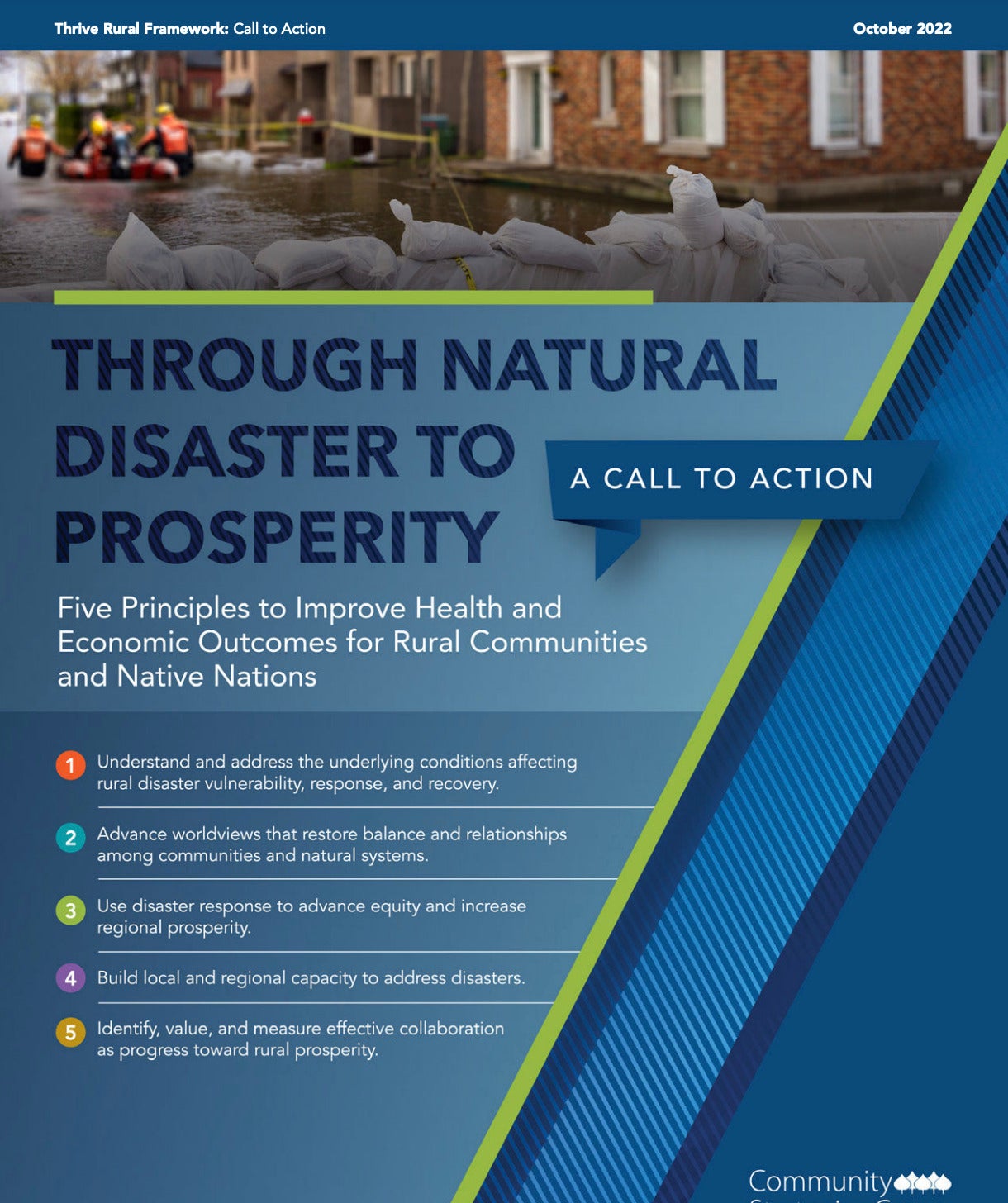For years, we’ve seen an increase in both the frequency and intensity of natural disasters, with Hurricane Ian being the most recent example of climate change’s devastating effects on our natural ecosystems. However, the sun shines brighter after the storm, and we have an opportunity to meet the moment by changing the way we approach rural disaster work. If we want a recovery effort beyond what the TV cameras see, it will involve dedicated, specific investment and practical changes regarding rural America.
Over recent months, we’ve convened 39 rural economic and community development practitioners from a diverse range of rural communities and Native nations to inform Through Natural Disaster to Prosperity: A Call to Action. Through this process, we’ve identified five principles to improve health and economic outcomes for rural communities and Native nations — as well as actionable steps to achieve these principles.
- Understand and address the underlying vulnerabilities unique to rural areas so we can be better positioned for disaster vulnerability, response, and recovery.
- Use policies to advance worldviews that recognize and restore balance and relationships among rural communities and natural systems.
- Use disaster response times to advance equity across race, place, and class and increase regional prosperity.
- Focus on building local and regional capacity to properly address disasters.
- Create more flexible and responsive funding streams at each stage from disaster preparation, to response and recovery.
Not only does the future of rural prosperity depend on taking these actionable steps, but so does the resiliency of these communities across the country. By moving away from a costly “patch it again” cycle and focusing on advancing community prosperity outcomes, we can create stronger rural and Indigenous communities — even in the face of more intense climate disasters.
Don’t miss the Executive Summary for quick takeaways and actionable recommendations.


